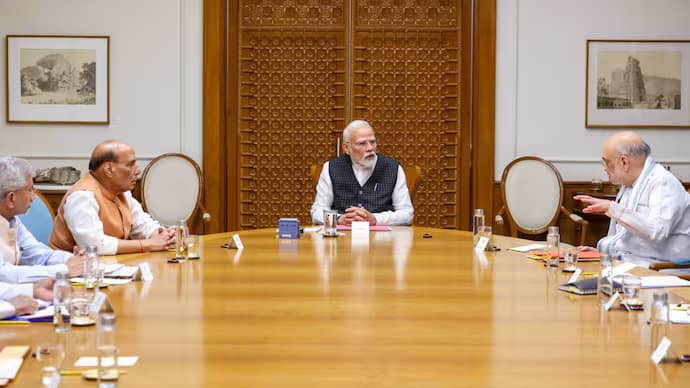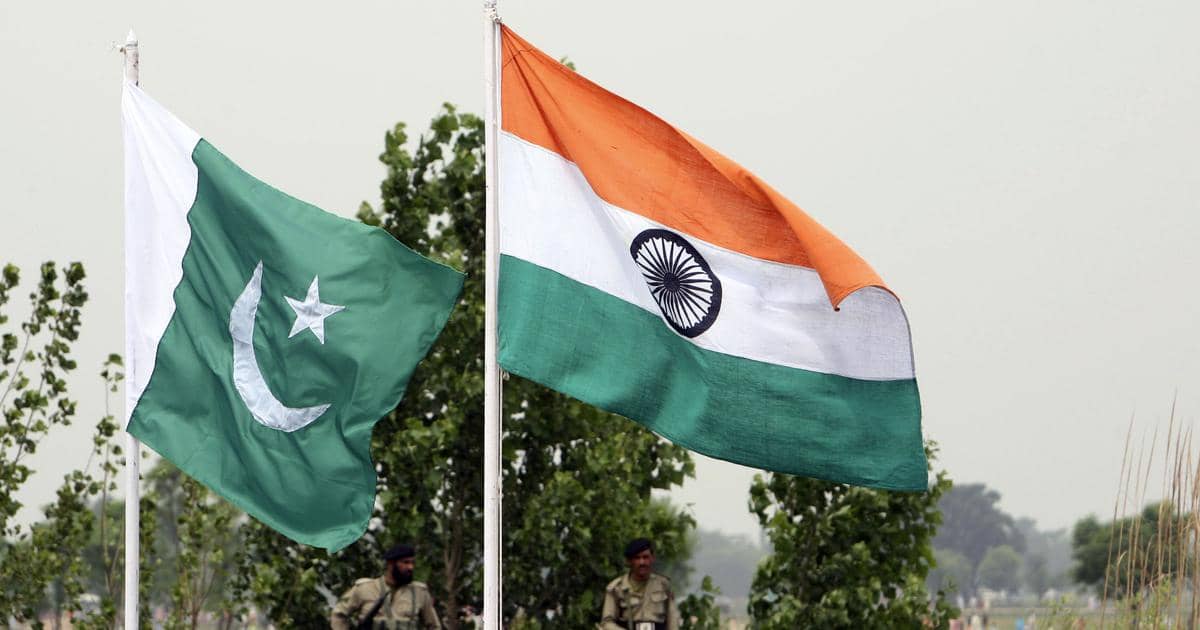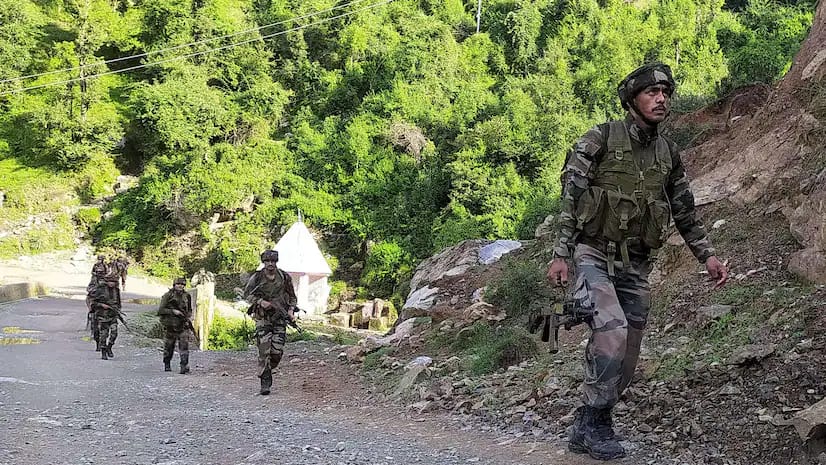India has taken a strong diplomatic and strategic step in response to the recent terror attack in Jammu and Kashmir. The Indian government has announced the suspension of the Indus Waters Treaty and the closure of the Attari border crossing with Pakistan. These moves come after a deadly attack that claimed the lives of Indian soldiers and civilians, prompting national outrage and an urgent call for action.
This decision marks a significant shift in India’s foreign policy strategy. It signals a tough stance on cross-border terrorism and a push for rethinking bilateral agreements that no longer reflect current realities.
In this blog we will break down what the Indus Waters Treaty is why it matters how India’s latest response is likely to impact regional politics and what the global community is saying. BestPrimeNews
What Is the Indus Waters Treaty
The Indus Waters Treaty is a water-sharing agreement signed between India and Pakistan in 1960. It was brokered by the World Bank and is one of the most successful international treaties still in force today. According to the treaty the six rivers of the Indus system were divided between the two nations.
India received the rights to use the waters of the eastern rivers — Ravi Beas and Sutlej. Pakistan got control over the western rivers — Indus Jhelum and Chenab. While India can use some water from the western rivers for domestic non-consumptive and agricultural use it cannot obstruct their flow.
The treaty was built on the idea of peaceful cooperation even during times of conflict. Despite wars and tensions between the two countries the Indus Waters Treaty remained untouched for over six decades.
The Trigger – A Deadly Attack in Jammu and Kashmir
The immediate cause of India’s strong response was the recent attack on security forces in Jammu and Kashmir. Militants targeted a convoy of paramilitary personnel leading to heavy casualties and widespread anger across the country. This was not the first such incident but the timing and scale of the attack made it different.
India has long accused Pakistan of sheltering and supporting militant groups that launch attacks on Indian soil. While Pakistan routinely denies these allegations the evidence from this incident pointed towards cross-border involvement.
The government was under immense pressure from the public opposition parties and security agencies to take decisive action. The suspension of the Indus Waters Treaty and closure of the Attari border were seen as strategic non-military measures to send a strong message.
Why Suspending the Indus Waters Treaty Is a Big Deal
The suspension of the Indus Waters Treaty is not just a symbolic move. It has serious consequences for both India and Pakistan.
- Water as a Strategic Asset
Water is a critical resource especially in the South Asian region where agriculture depends heavily on river systems. By pausing the Indus Waters Treaty India is asserting its upper riparian rights. This means India has the power to influence how much water flows into Pakistan. - Legal and Global Implications
The Indus Waters Treaty was brokered by the World Bank and is seen as a legally binding international agreement. Suspending it could lead to arbitration and even international legal battles. However India argues that extraordinary circumstances like state-sponsored terrorism justify re-evaluation. - Impact on Pakistan
Pakistan relies heavily on the Indus river system for drinking water irrigation and hydropower. Any reduction in water flow could severely impact agriculture power generation and water supply in the country. - Message to the World
By taking this step India is signaling that it will no longer follow agreements blindly if the other side does not hold up its end of peace and cooperation. It also sends a message to other nations that India is willing to protect its interests at any cost.
Why the Attari Border Closure Matters
Alongside the Indus Waters Treaty suspension India has also closed the Attari-Wagah border — the only road crossing between the two countries.
- Symbolic Importance
The Attari-Wagah border is not just a transit point but also a symbolic location. It hosts the daily flag-lowering ceremony which attracts thousands of spectators. Its closure sends a clear message that diplomatic relations are now at a low point. - Impact on Trade and People-to-People Relations
Many traders from both sides use the Attari border for importing and exporting goods. Cultural and religious pilgrims also use this route. The shutdown will hit small businesses and people who depend on this connection for travel and trade. - A Step Back in Diplomacy
India and Pakistan have seen multiple attempts at peace talks over the years. The closure of the Attari border may stall future dialogue and worsen already strained relations.
The Road Ahead – What Happens Now
The suspension of the Indus Waters Treaty and the border closure are not permanent. But they reflect India’s changing approach to regional diplomacy.
- Reassessment of Long-Standing Agreements
India’s decision to pause the Indus Waters Treaty shows that the country is willing to revisit even the most established treaties if national security is threatened. - Pressure on International Stakeholders
The World Bank and other global bodies will now be forced to take a stand or at least mediate. India wants the global community to recognize the cost of ignoring cross-border terrorism. - Possibility of Further Escalation
If Pakistan responds aggressively or if there is another attack tensions could escalate quickly. Military confrontation cannot be ruled out in a worst-case scenario. - Internal Political Dynamics
The Indian government’s actions are likely to be welcomed by a large section of the population. However opposition parties and international observers will keep a close watch on how far the country goes with these measures.
Global Reactions
The world has taken note of India’s latest moves.
- United States and Western Allies
While urging restraint these countries have acknowledged India’s right to defend its people. They have also increased pressure on Pakistan to crack down on terror outfits. - China’s Stance
As a regional power and close ally of Pakistan China has called for dialogue. But it has not openly condemned India’s decision on the Indus Waters Treaty. - United Nations Response
The UN has issued a standard appeal for peace and dialogue. But India has made it clear that its patience is running thin.
Historical Background – A Look Back at the Treaty’s Journey
The Indus Waters Treaty has survived wars and military tensions. But each event has added strain to the agreement.
- 1965 War
Even during the India-Pakistan war of 1965 the Indus Waters Treaty remained in place. - 1971 War and Bangladesh Liberation
Again the treaty survived despite intense conflict. - Kargil Conflict 1999
The issue was discussed in Parliament but no formal suspension occurred. - Uri Attack 2016
The Indian government considered reviewing the treaty but stopped short of halting it.
Each incident added pressure. But now with the suspension in 2025 India has crossed a line it never dared to in the past.
Domestic Impact of the Indus Waters Treaty Suspension
- Public Sentiment
The move is being seen as a long-awaited decision. Citizens across the country have expressed support calling it a firm response. - Impact on Indian Farmers
Indian farmers especially in Punjab and Jammu and Kashmir have often complained that too much water goes to Pakistan. The suspension could mean more water for local agriculture. - Political Response
Ruling party leaders have called it a bold and necessary decision. Opposition leaders are asking for clarity on the long-term plan.
Environmental and Technical Considerations
Pausing the Indus Waters Treaty does not mean India will immediately stop the flow of rivers. But it opens doors to more dam projects and diversion plans.
- Hydropower Projects
India could accelerate its dam projects on the western rivers. These projects are allowed under the treaty to a limited extent. - Water Management
India will need to invest in better water storage and distribution systems to make use of the extra water it might hold back. - Environmental Concerns
Changing the flow of rivers can have ecological impacts. Careful planning and environmental assessments will be essential.
The Geopolitical Roots of the Indus Waters Treaty
To understand why the Indus Waters Treaty has held such significance for over six decades we need to explore its geopolitical origins. When India and Pakistan gained independence in 1947 the partition not only divided people and land but also natural resources including rivers.
The Indus river system was one such shared resource. Most of the rivers originated in India but flowed into Pakistan. This created a potential flashpoint. By 1948 tensions had already started as India stopped the flow of water to some canals leading to outrage in Pakistan.
This early water conflict gave rise to the idea of an agreement that could prevent future wars over water. The World Bank stepped in and helped broker what would become the Indus Waters Treaty in 1960. It was signed by Indian Prime Minister Jawaharlal Nehru and Pakistan’s President Ayub Khan.
The Indus Waters Treaty was hailed globally as a rare success in conflict resolution. It allowed both countries to move forward with development projects without fighting over every drop of water. Over the years it became a symbol of what diplomacy can achieve even between rivals.
India’s Legal Rights and the Treaty’s Limitations
While the Indus Waters Treaty has generally worked well it is not without limitations. The agreement heavily favored Pakistan in terms of water volume. Pakistan got around 80 percent of the water from the Indus river system while India was limited to 20 percent.
India has always respected the treaty but with every terror attack its public opinion has shifted. The question being asked more frequently is this — why should India stick to a treaty when Pakistan is not honoring peace?
Under international law India cannot unilaterally revoke the Indus Waters Treaty without consequences. However India can legally use the water of western rivers for domestic agriculture and run-of-the-river hydropower projects as long as they do not obstruct the natural flow significantly.
By suspending the Indus Waters Treaty India is not officially breaking the law — it is signaling a review and possible renegotiation. This legal gray area gives India room to maneuver without being accused of treaty violations.
Strategic Use of Water in Modern Diplomacy
In today’s geopolitical climate water is more than a resource — it is a tool of strategy. Countries across the world are realizing that control over water can be used to apply pressure without military conflict.
The Indus Waters Treaty gives India the upper hand as the upstream country. By choosing to pause it India is using water as leverage. This is not unprecedented. Many countries including China Turkey and Egypt have used river control to influence downstream neighbors.
India’s move puts the spotlight on an uncomfortable reality — water is becoming a weapon in global diplomacy. And in South Asia where tensions are always close to the surface this new approach could shift the balance of power.
Economic Impact of the Treaty Suspension on Both Sides
The Indus Waters Treaty is not just a political document. It directly affects the economies of both India and Pakistan.
Impact on India
Suspending the Indus Waters Treaty allows India to redirect more water for its own use. This could benefit farmers in Punjab and Haryana where water scarcity has long been a problem. Improved water access could also help generate more hydropower especially in Jammu and Kashmir where projects have been stalled due to treaty restrictions.
Moreover India could invest in infrastructure like canals and reservoirs to make better use of its share of river water. This would not only boost agriculture but also reduce dependency on monsoons which are increasingly unpredictable due to climate change.
Impact on Pakistan
Pakistan faces a more severe challenge. Its agricultural heartland in Punjab province depends heavily on the Indus river system. Any significant reduction in water flow would affect crops especially wheat rice and cotton. This could lead to food shortages inflation and rural unemployment.
Additionally Pakistan already faces a water crisis. According to reports it could become water-scarce within the next few years. The Indus Waters Treaty provided a sense of security. Losing that even temporarily adds uncertainty to its future planning.
Diplomatic Domino Effect Across South Asia
India’s decision to pause the Indus Waters Treaty is not happening in isolation. It could trigger a domino effect across South Asia and even beyond.
Afghanistan and Central Asia
Countries like Afghanistan also share water systems with downstream neighbors. India’s move could set a precedent for others to reconsider old treaties. It could reshape regional cooperation on water management.
Bangladesh and the Teesta River
India’s own agreement with Bangladesh over the Teesta river has been stalled for years. With the suspension of the Indus Waters Treaty there might be renewed pressure on India to resolve these issues.
China’s Role in South Asian Water Politics
China controls the headwaters of the Brahmaputra and other rivers that flow into India. If India uses the Indus Waters Treaty for strategic advantage it’s possible China may do the same in future border disputes.
This emerging trend of ‘hydro-diplomacy’ or ‘water nationalism’ could replace the old rules of engagement in South Asia. And India’s current stand could be remembered as the moment when this shift began.
Possible Scenarios Going Forward
With the Indus Waters Treaty suspended the future could take multiple directions. Here are some possible scenarios:
Scenario 1 – Treaty Renegotiation
India and Pakistan could return to the table to renegotiate the terms of the Indus Waters Treaty. India might demand a greater share of water or the inclusion of anti-terror clauses as conditions for reinstating the treaty.
Scenario 2 – Mediation by International Bodies
The World Bank or United Nations may step in to mediate. This could lead to temporary arrangements until both countries agree on a new framework.
Scenario 3 – Long-Term Suspension with Infrastructure Focus
India might continue the suspension indefinitely while ramping up construction of dams and canals. This would give it more control over water without officially withdrawing from the treaty.
Scenario 4 – Escalation and Conflict
If Pakistan views India’s move as an act of aggression it might retaliate through military or diplomatic channels. This would escalate tensions and reduce chances of peaceful resolution.
Scenario 5 – Third-Party Legal Arbitration
Pakistan could take the issue to international courts or the Permanent Court of Arbitration. However these proceedings take years and results are uncertain.
Water Security as National Security
India’s move also highlights a growing global trend — linking water security to national security. Countries are now realizing that water scarcity can lead to social unrest economic instability and even war.
By pausing the Indus Waters Treaty India is essentially stating that cross-border terrorism is a threat to its water security. The logic is simple — if you are under attack you cannot be expected to maintain generous sharing of critical resources.
This broader view of national security — one that includes natural resources — will likely influence future policymaking not just in India but around the world.
Voices from the Ground – Public Reaction
The suspension of the Indus Waters Treaty has triggered varied reactions across Indian society.
Support from Farmers and Rural Communities
In regions like Punjab and Jammu farmers have welcomed the move. Many believe India should use its rightful share of water for local development. For them the treaty felt like a burden that helped Pakistan more than India.
Mixed Views Among Environmentalists
Some environmental experts support better water utilization but caution against damming and diversion projects without ecological assessment. They fear long-term environmental degradation if decisions are made purely for political reasons.
Urban Reaction
In cities the reaction has been largely supportive. Many citizens feel this is a necessary step to protect national dignity and hold Pakistan accountable for harboring terrorists.
Opposition Political Parties
While some opposition leaders have welcomed the move others demand transparency and a clear long-term plan. They worry about potential legal blowback or international isolation.
Building a New Water Diplomacy Strategy
If India wants to maintain control over its water narrative it must go beyond suspension and start building a broader strategy.
- Water Infrastructure
India must invest in modern water infrastructure including storage systems drip irrigation and waste-water recycling to fully benefit from any policy change. - Transparent Communication
Any changes to river management must be communicated transparently to both domestic and international audiences. Misunderstandings could lead to unnecessary panic or conflict. - Data Sharing and Technology
India can use satellite data sensors and AI to monitor river systems. Sharing this data selectively with allies can improve trust and prevent misinformation. - Building Alliances
India should work with countries like Bangladesh Bhutan and Nepal on shared water strategies. A South Asian water alliance could be a game-changer.
Closing Thoughts
India’s decision to pause the Indus Waters Treaty and shut the Attari border is a clear break from the past. It marks the beginning of a new chapter — one where India is not just reacting to provocations but shaping regional dynamics on its own terms.
For more than 60 years the Indus Waters Treaty was a symbol of peace in a region known for conflict. Now its future is uncertain. What is clear though is that India is prepared to lead not follow. And in doing so it may redefine the very meaning of diplomacy in South Asia.
Only time will tell whether this bold move leads to peace pressure or something entirely new. But one thing is certain — the world is watching and the next chapter in the story of the Indus Waters Treaty has already begun. BestPrimeNews



